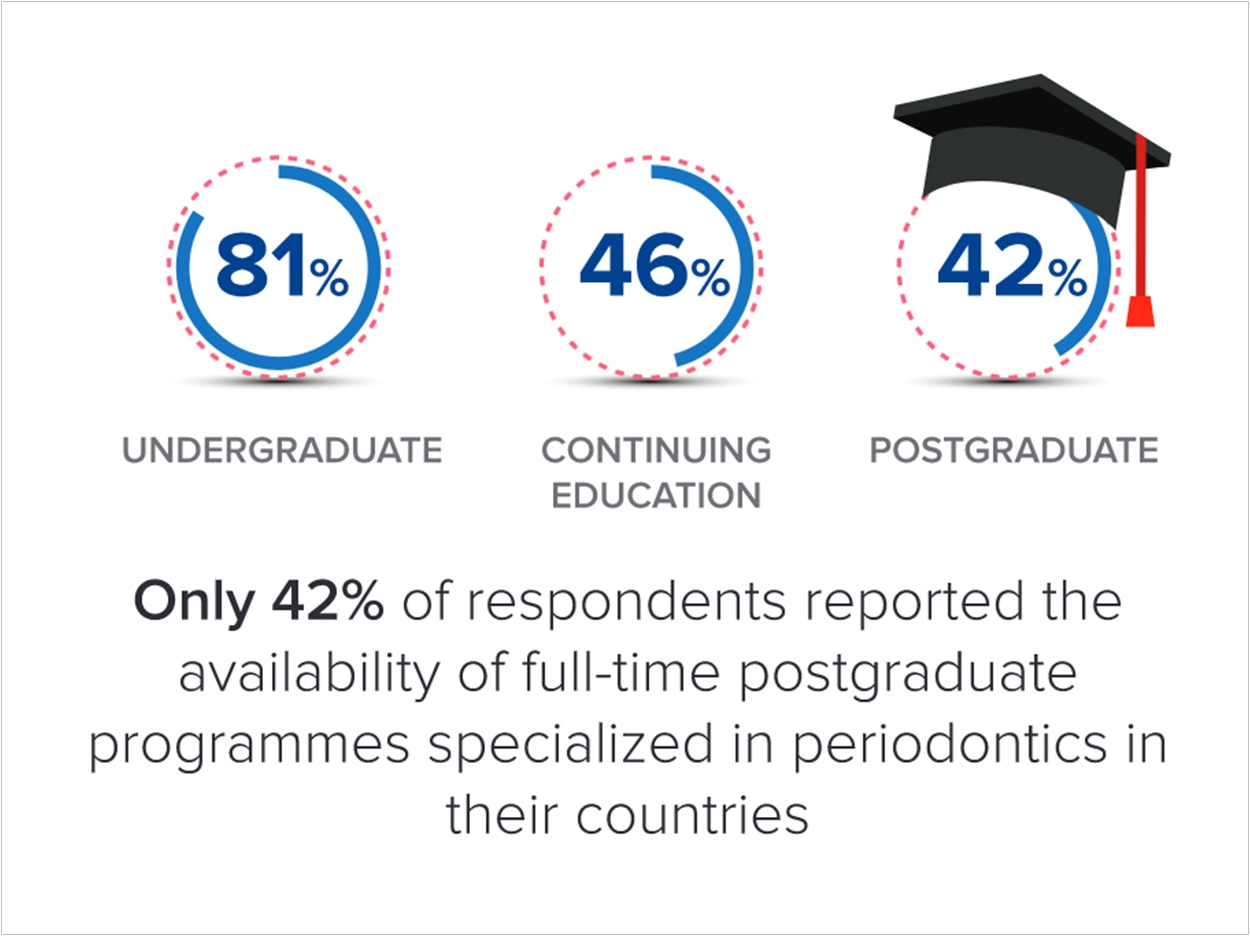
Though periodontitis affects most adults across the globe, only 40% of the world’s national dental associations (NDAs) have a national plan for monitoring and evaluating the disease, according to a survey conducted by the FDI World Dental Federation.
Carried out between June and October 2017, the survey also asked the 61 NDAs that took part in it about national health policies, health information systems, periodontal health education, the workforce, and preventive or promotional activities carried out by NDAs.
According to the survey, a third of the NDAs had national policies or guidelines addressing the prevention of non-communicable diseases. Most of the policies include a specific focus on reducing exposure to risk factors, mainly tobacco, sugar, and unhealthy diets.
Also, only 15% of the countries involved had national policies addressing the promotion of periodontal health; prevention, diagnosis, and treatment of periodontal disease; workforce or specialized training education; and their healthcare system or health insurance.
Meanwhile, 81% indicated the existence of basic periodontal training within their core oral or dental undergraduate curriculum, though only 42% had postgraduate studies specialized in periodontics.
Three quarters of the NDAs reported knowledge of periodontology as a registered specialty and two thirds were aware of a dedicated periodontology association in their countries. Also, 60% said that periodontal screening was systematically included in routine dental checkups in their countries.
Overall, the survey revealed that NDAs perceived a low level of periodontal health awareness among health professionals and the general public, even though half of the NDAs conduct promotional campaigns for periodontal health, indicating room for improvement in preventing periodontal disease and promoting periodontal health.
Related Articles
FDI Publishes Guide on Sugars, Caries, and Policy Advocacy
Oral Hygiene Myths Continue to Persist
Global Oral Health Fails to Improve in 25-Year Study












